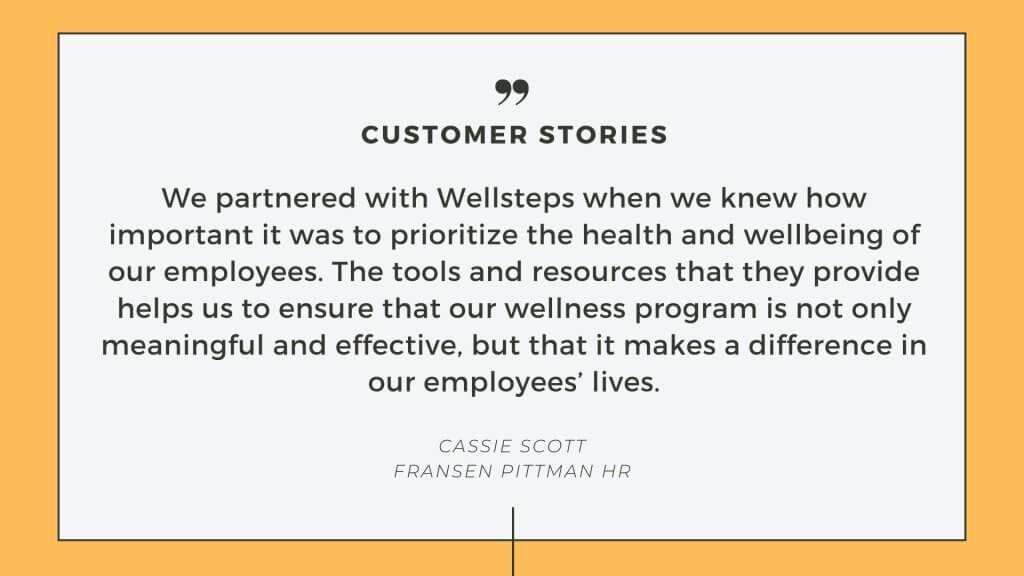Creating ways to improve employee morale in your company begins with understanding the issue. What’s troubling your team? What causes the slump in their spunk? How do you deal with it?
Let’s take a deep dive and find out.
Understanding How To Improve Employee Morale
Morale is a person’s sense of satisfaction, purpose, and confidence. Essentially, feelings and perceptions about themselves in relation to their environment.
Low morale in organizations can beset even the best of your people— when their spirits dip and they work below optimum. Most of the time low morale is an outcome of stress or disappointment. Other times it stems from just going through the motions of life, the aimless drift chipping away at their drive.

Monotony could also be the breeding ground for lack of enthusiasm. This is probably what inspired the adage “all work and no play makes one dull.”
In the workplace, it’s relatively easy to spot an employee weighed down by low morale.
- lack of eagerness to take on or finish projects
- perform low-quality work
- consistently fail to meet deadlines
- often tardy or absent from work
Where they used to be competitive, they are now simply compliant or worse, complaining.
It could turn into an albatross around their neck, slowing down their growth and taking them and your company’s productivity downhill.
If you notice your employees showing these signs, it’s time to help them get a fresh infusion of encouragement in their personal and professional life and improve the employee morale. Otherwise, it could turn into an albatross around their neck, slowing down their growth and taking them and your company’s productivity downhill.
RELATED: How Do Wellness Programs Increase Productivity in the Workplace?
When Drive Takes a Dive
Employees are humans who are more than the sum of their work output. While their performance is measured by their accomplishments, they are not machines. They are breathing, feeling beings with a need to mindfully appreciate the why’s and not just the how’s of what they do.
They need to have a clear view of their value, potential, and aspirations as individuals and as part of a team. When those needs are overlooked, they begin to feel low, lose focus, and feel physically and mentally lethargic.
Somewhere between being fired up and watered down, their sense of value can take a hit, weakening them from the inside out. A sense of disjoint creeps in and they lose their drive.
Employees with low morale don’t usually speak about it, but it shows in their declining performance, work attitudes, and decreasing interests.
Employees with low morale don’t usually speak about it, but it shows in their declining performance, work attitudes, and decreasing interests. Therefore, companies must take steps to improve employee morale and nip demotivation in the bud.
How? Through innovative and creative wellness programs incorporated into the company’s culture. Here’s how they help.
RELATED: What is an Employee Wellness Program: Everything You Need
Wellness Programs Help Improve Employee Morale By Helping Employees Feel Valued
Given its impact on work performance, human resource managers must address any sign of low morale among employees. A root cause analysis could help determine why an employee feels this way.
It could be that the company’s new policy does not seem favorable to them. Or an expected promotion was given to someone else. Or maybe it’s a case of piled-up negative feelings of being overlooked for a long time despite their loyalty and dedication. Personal problems may also cause employee morale to plummet.

Experiences like these could lead to mental and physical stress, disappointment, and frustration that eventually affect an employee’s spirit and overall wellness if disregarded.
Creating a wellness program for employees can help lift their spirit and self-perception. While financial rewards in the form of salary increases and bonuses are good, employees also appreciate it when the company they work for cares about their wellbeing.
A good wellness program helps workers manage stress, develop a mindful way of working, and strengthen their relationship with the company
It sends a message that they matter and fosters a healthy atmosphere where employees feel valued for who they are and not simply for what they do. A good wellness program helps workers manage stress, develop a mindful way of working, and strengthen their relationship with the company.
RELATED: 10 Tips to Implement Mindfulness in the Workplace
Wellness Programs and Positive Employer Branding to Improve Employee Morale
Having a wellness program not only helps improve employee morale but also enhances the company’s reputation as an employer. And because it promotes employee well being, it makes employees feel like valued team members.
Employer branding is how companies take care of their people as perceived by their employees, job seekers, and other stakeholders.
Corporate managers recognize the importance of employer branding and its internal and external impact. The more reputable a company is as an employer, the more it attracts quality applicants, retains employees, and reinforces its corporate values. For businesses, it means they walk their talk and are responsible corporate citizens.
And if you want to draw the best brains and brawn in your industry, a top-notch employee benefits program that includes wellness and financial perks is the way to go.
Think of it as an asset investment (your manpower forms part of your assets) that yields quality employees and results in higher productivity, enhanced work environments, worker wellness, and other benefits for both the company and employees.
RELATED: 9 Workplace Well-Being Activities to Skyrocket Employee Productivity
Wellness Programs Help Improve Teamwork

In the absence of a cordial relationship among employees, work feels strained and there is a general sense of stress.
Interactions beyond the boardroom, such as engaging in sports or hobbies with like-minded coworkers, can help create connections and ease tension in the workplace. Conflicts and differences can be minimized or controlled through management initiatives and intervention.
RELATED: 50 Office Challenge Ideas Including Office Fitness Challenges
In Sync and Inspired
Through collaborative wellness programs, employees can get to know their colleagues on a more personal level in informal settings like the gym, restaurants, or outdoor recreation venues.
A wellness program may include creating clubs by bringing together employees who share similar interests.
- yoga
- sports
- painting
- music
- film
- photography
- books
- cooking
Each club could be headed by an expert who may be from within the company or sourced from outside. Regular meetups, coaching, exhibits, competitions, and other activities further cultivate a sense of camaraderie and teamwork among members while providing a creative outlet and helping them relax and de-stress.
Having a small group system that involves support and accountability or activities like smoking cessation programs and weight loss programs helps reinforce the resolve of struggling employees.
RELATED: 16 Workplace Health and Well-being Ideas, Activities, and Initiatives for Any Budget
Wellness Programs Help Cultivate a Family Atmosphere
Employees are happy when they have good relationships, whether at work or home. Participatory wellness activities that involve employees’ significant others help nurture their relationships.
When their partners participate in their wellness journey, it adds more meaning to the activity and enhances their motivation to do well. Encouragement coming from people who matter to them on a personal level inspires them not to lose sight of their goals and go back and stay on track.
Companies can also provide wellness subsidies and education programs that extend to employees’ spouses or partners so they can go on a health and fitness journey together. Corporate health insurance and perks like a free gym membership that extends to the employees’ families make employees feel at home with the company because their families are also taken care of.

Wellness Programs Create a Sense of Belonging
Nurturing an inclusive culture in the workplace gives employees of any background a sense of belonging. Wellness programs that cater to the needs of all employees, regardless of their identities and context meet their yearning for acceptance.
Employees who feel they belong to the organization tend to feel more satisfied, involved, and motivated to do their job well.
Employees who feel they belong to the organization tend to feel more satisfied, involved, and motivated to do their job well. They feel more confident because they know their place in the company.
Group-based wellness programs that involve collaborative projects can help reinforce the belonging factor. There are also one-on-one coaching programs that help improve employee morale because they feel valued enough to be given undivided attention and equal importance.
Wellness programs like walking activities with digital platforms where participants can log their number of steps, share activities, and encourage their peers can also play an important role in fostering a spirit of belonging.
RELATED: Why Small Business Wellness is the Future Updated
Wellness Programs Improve Employee Health
Without doubt, healthy employees are happy employees. Knowing that they are on the right path to physical and mental fitness gives them a sense of security and accomplishment. Knowing they are at a lesser risk of heart attacks or injuries in the workplace can decrease their anxiety and boost their peace of mind.
When your employees are unwell, tardiness and sick leaves increase, and productivity and quality of work may also decline. Frequent work disruptions can also affect the bottom line. Sickness means cost; therefore, preventive measures are always a good idea.
A holistic approach to employee wellness is good because it improves both their physical and psychological needs. A physically healthy employee with unaddressed feelings of dissatisfaction can still feel less motivated at work.

Strengthening your employees’ mind to handle pressures in the workplace is a good way to boost their confidence. Having a strong mind enables an employee to better deal with negative situations and emotions.
Coaching sessions promote mental health and improve employee morale in many areas.
- anxiety management
- anger management
- de-stressing techniques
When employees think and feel well, they are motivated to rise above challenges and excel. They don’t easily get demotivated, overwhelmed, or lose focus when difficulties strike, whether at work or in their personal lives.
When employees think and feel well, they are motivated to rise above challenges and excel.
Conversely, being physically and psychologically unhealthy affects an employee’s morale. A worker plagued with a poor health condition feels less confident tackling big challenges. On the other hand, a lack of confidence and support may cause an employee to easily feel tired and unable to finish tasks compared to others.
RELATED: This Is the Impact of Employee Wellness Programs on Health Care Costs
Small Steps, Big Impact
Celebrating employees’ small and big wins with wellness programs can fuel them to take the right steps, keep moving, and expand their goals.
However, wellness programs are not quick-fix formulas that can turn employee wellness around with just a couple of feel-good activities or pep talks. It is about cultivating a culture where advocating for employee wellness is the norm and makes the company an attractive place to work in.

This also gives the company a competitive advantage in attracting job seekers, retaining existing workers, and strengthening employee loyalty.
RELATED: 8 Desirable Benefits of Corporate Wellness Challenges for Employees
Companies With Wellness Programs Are More Successful
Companies with happy and healthy employees benefit from high productivity. They are better equipped to meet targets. They also have a better public perception, positively affecting their stock valuations.
In fact, according to a report, publicly traded companies with award-winning wellness programs have 13% more annualized returns compared to Standard and Poor’s stock index.
Publicly traded companies with award-winning wellness programs have 13% more annualized returns compared to Standard and Poor’s stock index.
Aside from this, good wellness programs also help companies save on health insurance claims because employees don’t easily or frequently get sick. They have the potential to contribute to revenue because wellness programs help reduce long-term and rising costs of workforce healthcare.
Companies that prioritize their employees’ wellness reap both tangible and intangible benefits with these financial benefits — from positive perception to low employee turnover rate.
Where there are effective employee wellness programs in place, everybody wins. It drives revenues and reduces expenses for the company while improving employees’ wellness and success in the workplace.
RELATED: Proof Wellness Programs in the Workplace Save Money
Morale-Boosting Moral Obligation
Wellness programs designed to keep employee morale up bring a string of benefits, foremost of all being a highly motivated workforce.
Nothing beats nurturing a mutually satisfying professional relationship between and among management and employees to create a space where people feel accepted and supported.
The benefits are also long-term, like employee loyalty, expertise building, and a strong sense of affiliation to the company’s goals and vision. Everyone works together for a common end, and the journey is as satisfying as reaching the destination.
It is a company’s moral obligation to provide a healthy and wholesome environment where individual mettle is reinforced, enabling employees to thrive.
It is a company’s moral obligation to provide a healthy and wholesome environment where individual mettle is reinforced, enabling employees to thrive.
While some industries and companies are known to have or encourage a toxic, cut-throat culture, wellness programs can help mitigate the negative effects by strengthening employees’ minds, bodies, and spirit.
RELATED: Wellness Company: Why Every Company Must Become One Now
Winning The War Through Wellness
If business is war, then your employees are your fort. You keep enemies from blowing and crumbling your walls by strengthening them, brick by brick — reinforced with the right support and guarded against threats.
In short, it is a company’s privilege to be in a position to help change people’s behavior and disposition, and the positive ripples are felt by families, communities, and the society. The way to keep winning is by keeping your people’s spirit up.
Remember, a company that understands the relationship between wellness and wealth-building is always a step ahead of the competition. Discover how your company can do the same in a Free Demo with our WellSteps team.
